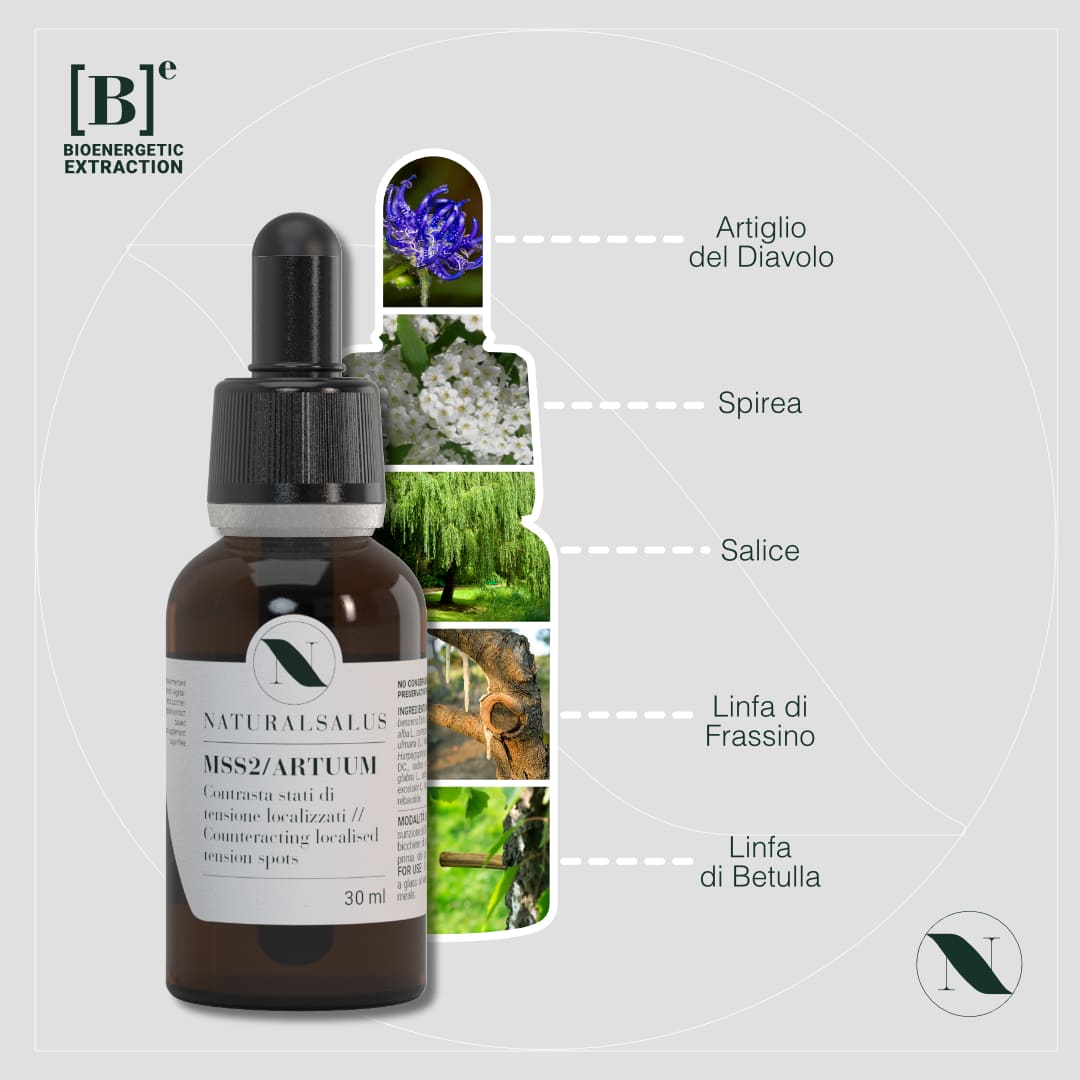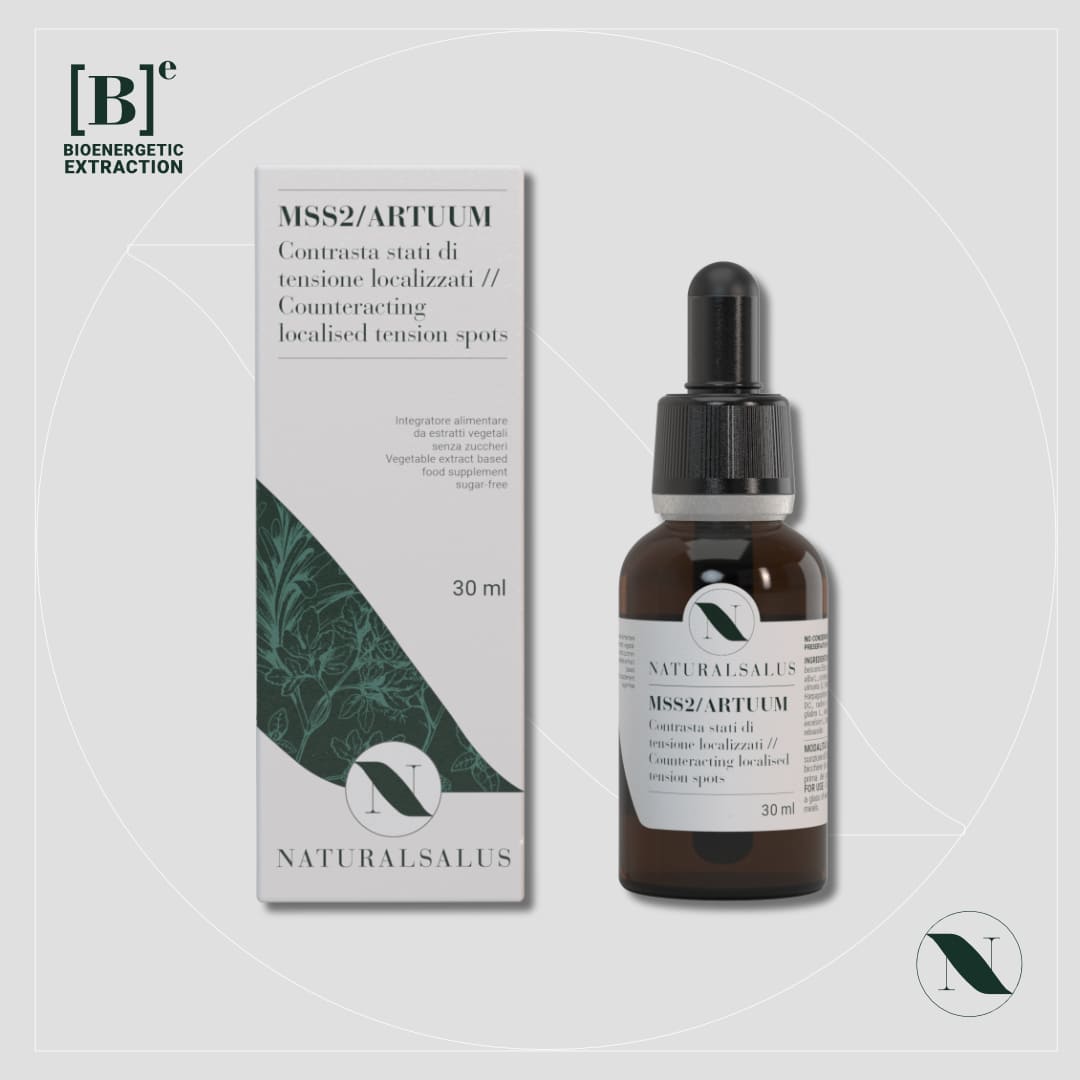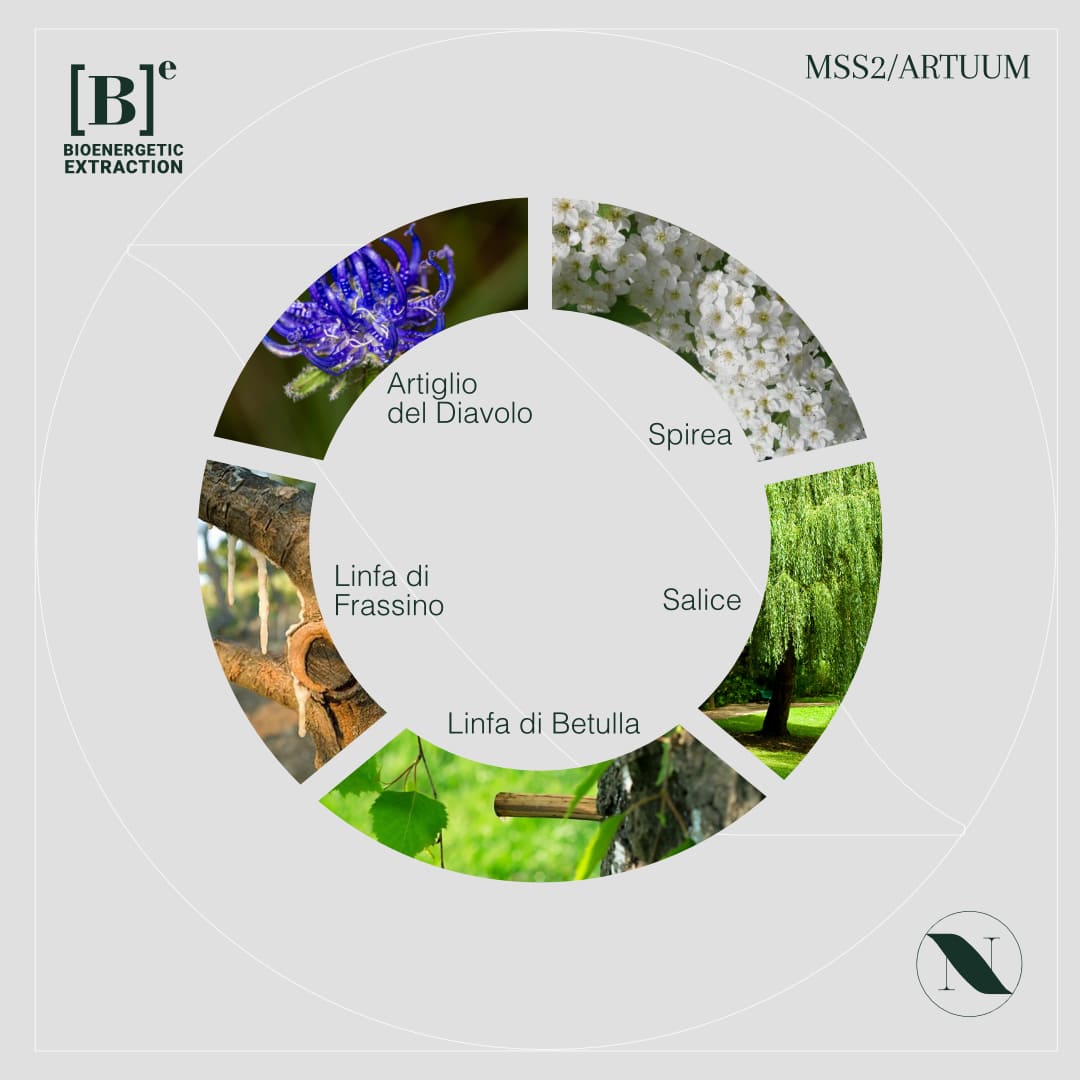

MSS2/ARTUUM - Natural musculoskeletal pain food supplement
Natural relief from rheumatic, joint and post-physical activity pain - inflammation phytotherapeutic modulation
Muscle and joint pain, rheumatism or physical stress inflammation can hinder movement and disrupt quality of life. MSS2/ARTUUM by NATURALSALUS is a fast-acting liquid food supplement formulated to help the body’s physiological recovery process from musculoskeletal pain and inflammation.
Thanks to the synergistic and balanced herbal phytocomplex of Devil's Claw, White Willow, Spirea Ulmaria, Birch, Ash and Liquorice - MSS2/ARTUUM works on several fronts. It modulates the inflammatory response, reduces the perception of pain and facilitates fluid drainage.

MSS2/ARTUUM - Natural musculoskeletal pain food supplement
Sale price€17,90



Explore other areas of wellbeing
Discover all our other products, organised by condition, benefit, stage of life or lifestyle, and find the natural supplements that best suit your needs.



